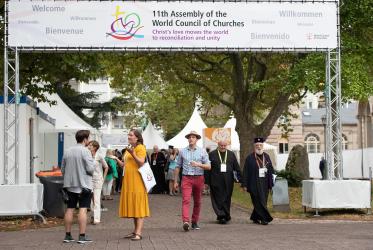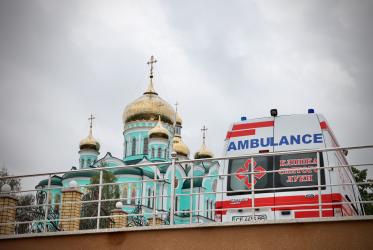Displaying 1 - 17 of 17
22 August 2023
Ukraine: Responding to humanitarian need
08 September 2022
Monastery in Ukraine responds to the consequences of war
09 August 2022
Protecting Ethiopia’s church forests
27 October 2021
An interview with the Ethiopian Patriarch, Abune Matthias
14 February 2017













